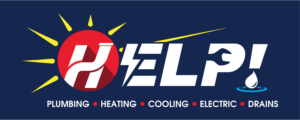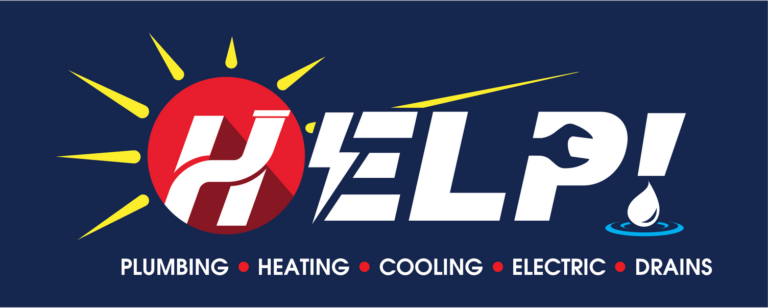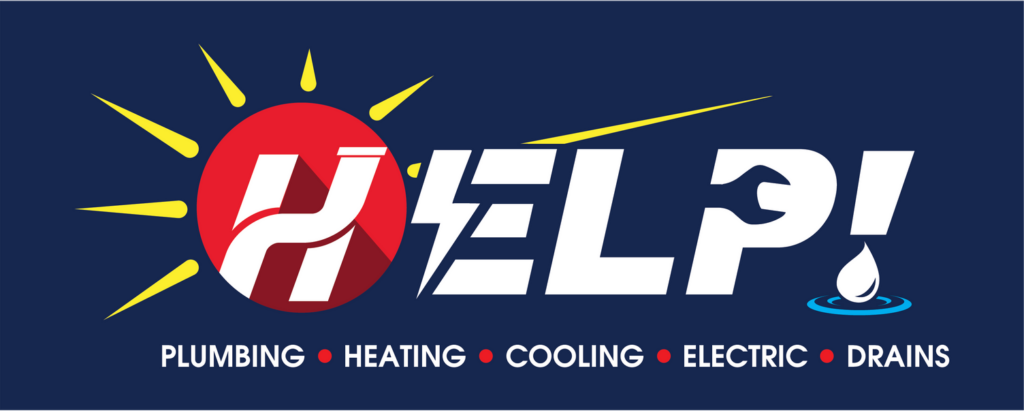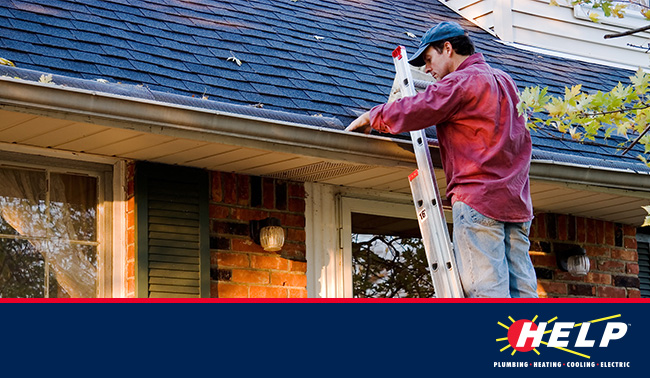
The best way to prevent plumbing, HVAC, and electric problems and make your home safer and more efficient is by scheduling professional heating, plumbing, and electrical maintenance in the fall, and air conditioning maintenance in the spring.
Make sure your service provider cleans your system components and inspects the entire home. Committing to regular preventative maintenance is essential for maintaining a safe, clean, and efficient home.
Contact HELP Plumbing, Heating, Cooling and Drains today your annual professional maintenance in Cincinnati and the surrounding area. Sign up for the HELP Club for automatically scheduled maintenance appointments, exclusive discounts, priority scheduling, and much more. It’s the best way to ensure your home runs smoothly year round.
While a qualified professional will be able to handle all of the more complicated maintenance, there are many things you can do to promote a healthy, safe, and efficient home.
Essential Fall Home Maintenance
Here are the most essential fall home maintenance tasks to complete before winter arrives:
Inspect furnace intake and exhaust pipes
If you have a sidewall furnace ventilation system, it’s important to make sure the pipes are properly installed and free of obstructions.
In the fall and throughout the winter, it’s a good idea to check your sidewall furnace intake and exhaust pipes for blockages or other problems, such as soot staining the walls. If the furnace won’t turn on, this is one of the first things you should check. If the vents become blocked, the furnace won’t work.
You may also want to install some sort of screen or mesh on your vents to prevent pests from entering the pipes. Hardware mesh with ½” screen holes are best. If the mesh is too small, then snow and ice can quickly clog the pipes. If the holes are too large, it won’t do much to prevent pests from entering.
Inspect and clean gutters and downspouts
Gutters are an often-neglected part of our homes, but they are an essential for protecting our houses from water damage. If you ignore your gutters, water can spill over your gutters and cause foundation damage, siding damage, rotting wood, pest problems, moldy attics and basements, and roof leaks.
Late summer and early fall are great times to inspect your gutters before the leaves begin to fall. No doubt you will have to clear your gutters again after the leaves start falling, but if you do a thorough gutter inspection now, it will make your work in the late fall a lot easier. We recommend checking your gutters and downspouts every 3 months. Make sure you clean your gutters and downspout system at least twice a year.
If water is pooling around your home, then you may want to speak with a professional about drainage systems. You can solve a lot of your problems by installing downspout extenders to redirect water further away from the home.
Drain and winterize any outdoor faucets and irrigation systems
Inspect all outdoor water faucets for damage. If they have a shut-off valve, close it off and turn on the faucet to drain any excess water in the faucets. For irrigation pipes, shut off the water supply and manually open all of the drain valves.
Learn more about how to drain and winterize faucets and irrigation systems. To help winterize your outdoor plumbing, consult a local plumber to ensure the job is done right. During your fall plumbing maintenance inspection, your plumber will be able to winterize everything for you and answer all your questions in the process.
Prepare all yard equipment for storage
Don’t forget to winterize your yard equipment, including lawn mowers, leaf blowers and chainsaws. Be sure to drain the fuel from gas-powered tools before storing them inside the basement or garage.
If you let the gas sit in your equipment, it will gunk up in the bottom of your tank, causing clogs in your ports and fuel lines. Repair shops make a good living off of “bad gas” problems with yard equipment. Be smarter than the rest and run out your tank of gas to avoid “bad gas.”
Sweep the chimneys
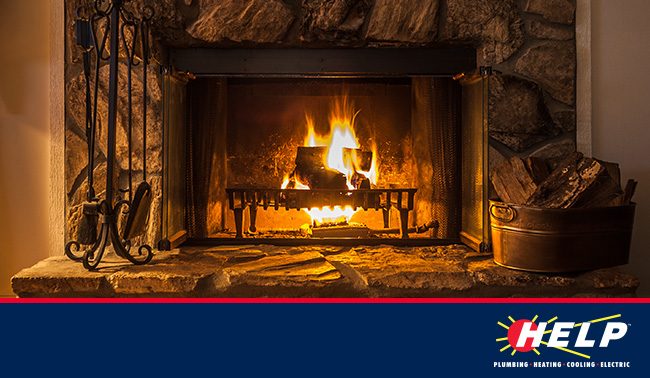
This is a very important but often-neglected fall task. Creosote, dust, and soot have been building up in your chimney for a while now and it is time to “Chim Chim Cher-ee” your chimney. You can do this yourself, but it’s a hard and dirty job. We recommend that you hire a professional to clean your chimney so the job is done right. Neglecting this task puts your home at a much higher risk for chimney fires.
Be extra careful with your electrical system
Check your extension cords and surge protectors before you use them. If there are loose wire, do not simply bandage them with electrical tape; you should find a replacement. Do not run extension cords or wires underneath rugs or anywhere where there is foot traffic. The wiring could become frayed or damaged, causing a potential shock to anybody walking over. Do not use extension cords for extended periods of time. Hire a trusted electrician to install more outlets if needed.
Never use water to put out an electrical fire! Make sure you have the appropriate fire extinguishers located in the kitchen, basement/garage, and laundry room.
Remember the acronym PASS: Pull, Aim, Squeeze, and Sweep. Learn how to put out an electrical fire with and without a fire extinguisher.
Do you have a fire escape plan for your family? If you don’t have one, refer to this guide from the National Fire Protection Association.
When you are away from home or going to sleep, make sure you unplug all unnecessary appliances and electrical devices and extinguish any open flames.
Winter is the peak time of year for home fires! Learn how to inspect your home for fire hazards.
Trim plants and protect your outdoor unit
Summer was a great time for your plants to grow. Ensure that they are not growing too close to your outdoor HVAC unit by inspecting the area around your unit for any branches, vines, and weeds that may be encroaching. If you find any rust on your unit try to clean off as much as you can. You can apply a sealant or metal paint to the metal areas to protect it from the harsh winter. Continue to monitor the condition of your outdoor unit during the fall for leaves, branches, and other material that may be damaging your system. You want to make sure that there is good airflow around the unit.
Clean or replace your air filter
Your HVAC system has been hard at work this summer getting you cool air. If you haven’t replaced your air filters this summer, they are most likely in need of one. You don’t want to forget about this one because if you do, airflow will be dramatically reduced, causing your system to work harder and possibly break down.
Seal air leaks
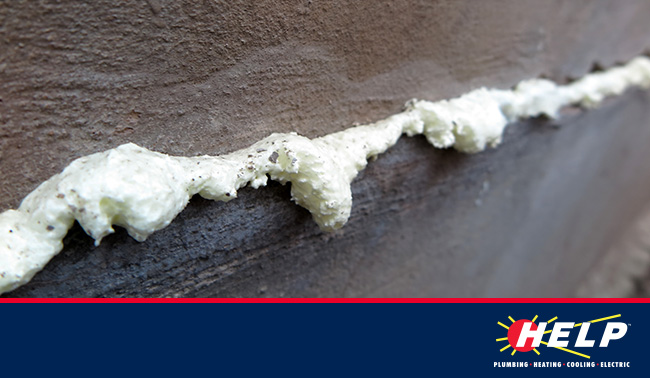
There are some leaks, like in the windows and doors that you are probably aware of, but if you really want to seal up your home for winter, you will need to investigate some less-obvious places. Over half of your home’s energy use goes towards heating and cooling your home. Make sure all that expensive, conditioned air stays inside your home, instead of sneaking out.
This useful air sealing map from the U.S. Department of Energy provides a list of places to check for air leaks in your home.
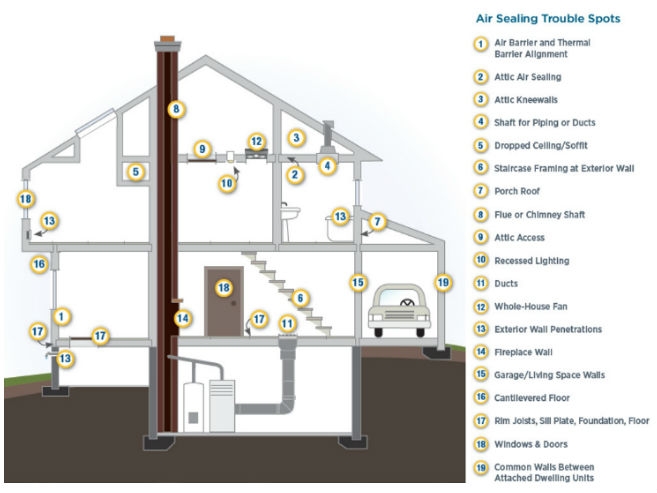
You can seal up air leaks in many different ways, but the most popular are insulating and caulking. Caulking is much cheaper and easier to do, but to really seal up your house you need to do both.
Caulking:
Start by walking around the perimeter of your home where wires, pipes, ventilation, and air conditioning lines are entering your home. Next, inspect the outside of all of your doors and windows.
- For small cracks and gaps, less than a quarter inch thick, use weatherproof caulk to seal up the leaks.
- For any exterior leaks that are greater than a quarter of an inch, use expandable foam spray.
After you have sealed up any leaks on the outside of your house, start going around the inside of your house, using the map above as a guide.
- To seal leaking ductwork, use aluminum duct sealing tape or mastic sealing (paint on). Ironically, duct tape will not do a good job sealing up your ducts.
- For drafty windows and doors, light an incense stick and hold it up to suspected leaky areas. If you smoke begins to be blown or sucked, you have just detected an air leak. For windows that you will not open all winter, you can use a heat-shrink window film. Other solutions include weatherstripping, rope caulk, and heavy drapes.
- Take advantage of the sunshine and open drapes and shades when the sun is out. Make sure to close them when the sunshine goes away.
- Consider investing in insulating your attic, where most of you heat is likely to escape.
Remember, that if you do make any major insulation changes in your home, to have an experienced HVAC professional inspect the ventilation and airflow balance of your system. It is possible to have an overly tight home that restricts ventilation and can cause health problems.
Contact HELP Plumbing, Heating, Cooling and Drains at [site_info_phone_number] for all your plumbing and HVAC needs in Cincinnati, Northern Kentucky, and West Harrison, Indiana.
